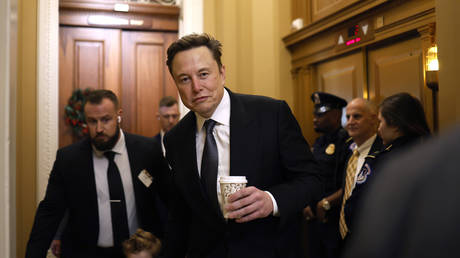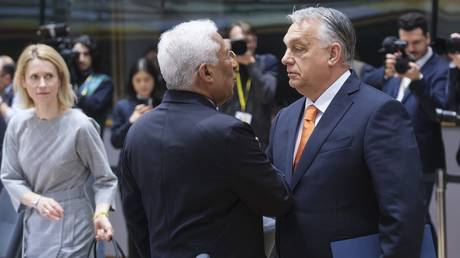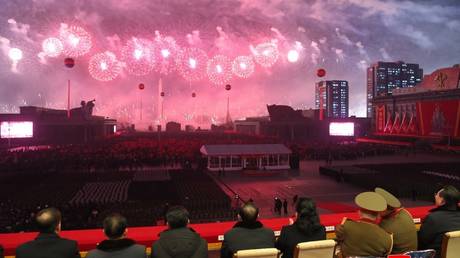
The Tesla and SpaceX owner penned an article praising the anti-immigration AfD party
The opinion editor at Germany’s leading newspaper Die Welt has resigned over the decision to publish an op-ed by Elon Musk, in which he defended the anti-immigration Alternative for Germany (AfD) party.
“I have always enjoyed running the opinion pages of Welt and Welt am Sonntag. Today, an article written by Elon Musk appeared in Welt am Sonntag. I handed in my resignation yesterday, after it went to print,” Eva Marie Kogel wrote on X.
The billionaire owner of SpeceX, Tesla and X (formerly Twitter) wrote the article after praising AfD on social media. In his op-ed, the major ally of US President-elect Donald Trump hailed AfD as “the last spark of hope” for Germany. The billionaire insisted that its “pragmatic” approach will usher in a revival of the country, while arguing that other parties are out of touch with regular people.
“The traditional parties have failed Germany. Their policies have led to economic stagnation, social unrest and an erosion of national identity,” Musk wrote. “Despite being far-right, AfD represents political realism that resonates with many Germans who feel that their concerns are being ignored by the establishment.”
Musk further defended the AfD, stating that “their portrayal as far-right is clearly false.”
According to German media, the publication of the op-ed sparked intense debates among the staff at Die Welt, with some viewing it as meddling in the snap parliamentary election, which is scheduled for February 2025.
Jan Philipp Burgard, Die Welt’s senior reporter, penned a rebuttal to Musk, calling his praise of AfD “fatally flawed” and arguing that it was “a big mistake” not to label the party as far-right.
Another Die Welt journalist, Franziska Zimmerer, insisted in her own op-ed that the text written by Musk “should not have appeared” in the paper. “Election appeals, no matter the party, have no place in independent media,” she wrote.
Founded in 2013, AfD has been pushing for the tightening of asylum laws and fighting organized crime and Islamic extremism. The party has become more popular in recent years, winning its first regional election in Thuringia in September.
The 2025 election was called after the ruling three-party coalition collapsed due to the conflict over budget.




